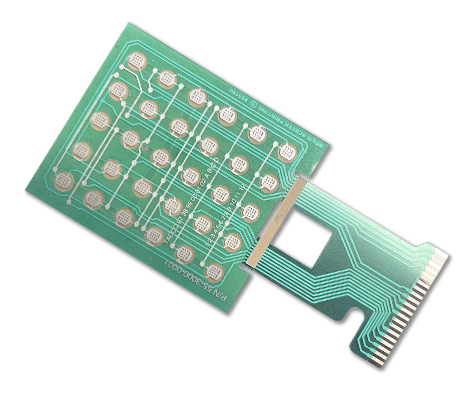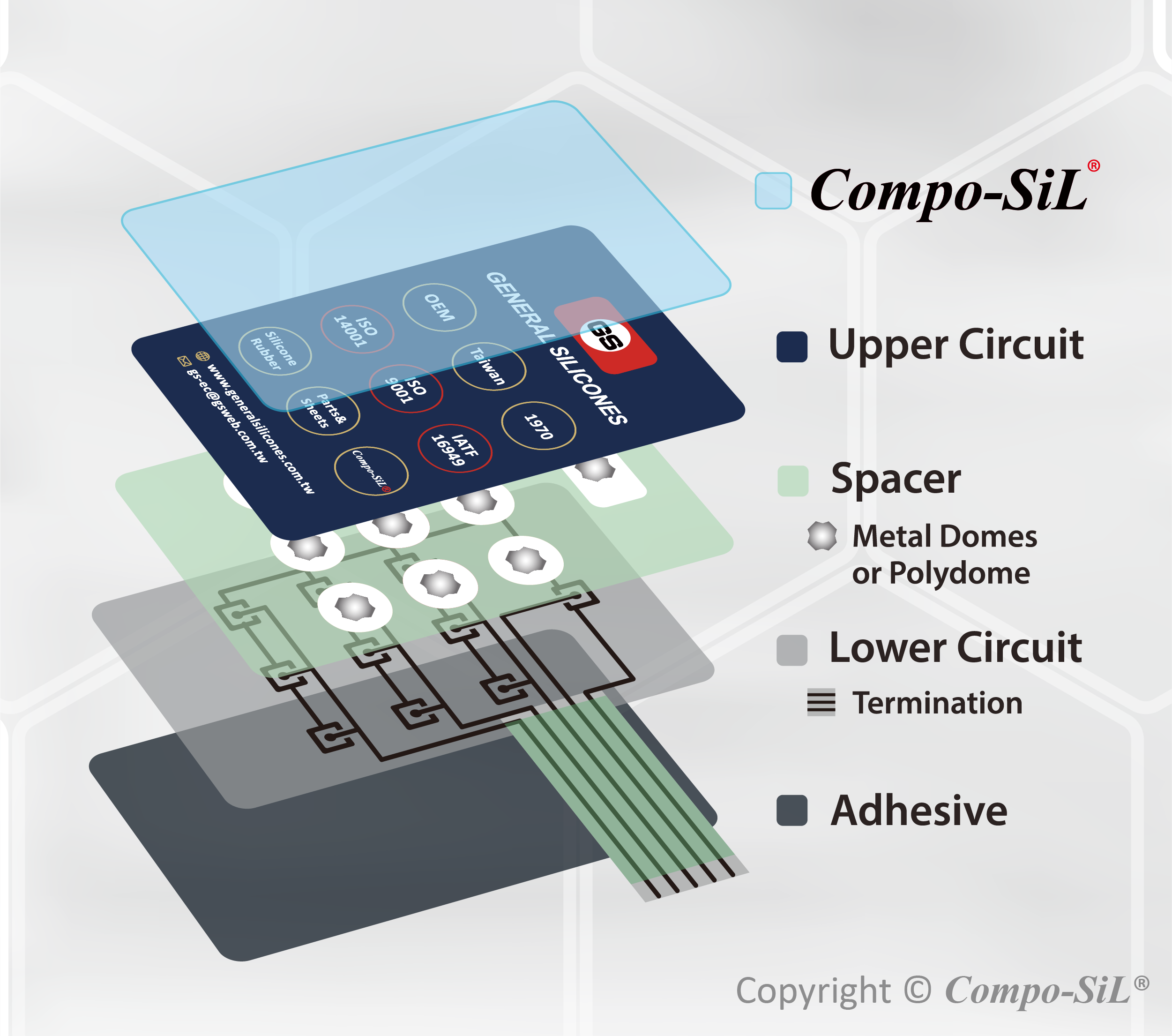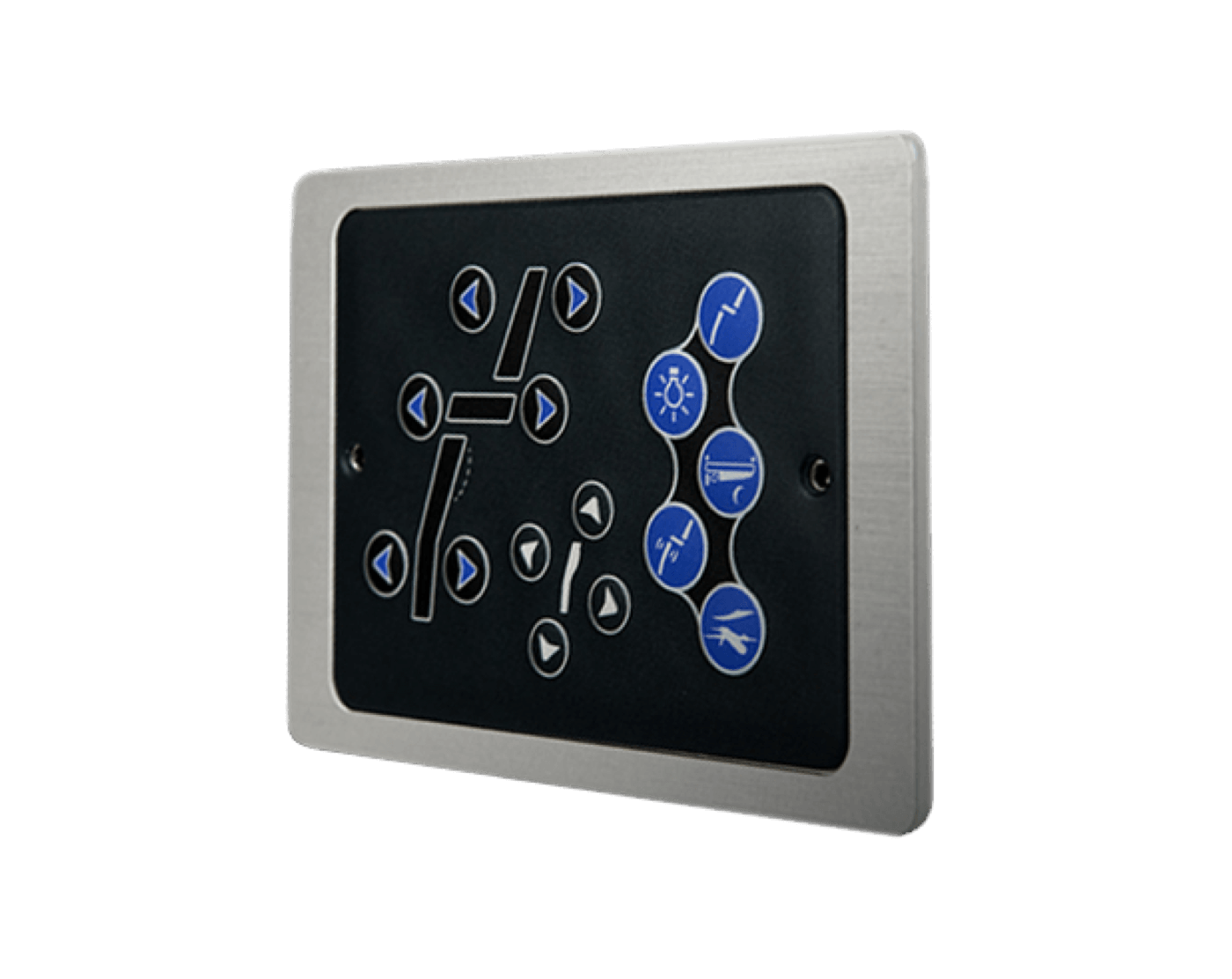How Membrane Switches Are Used in Medical Devices and Equipment
How Membrane Switches Are Used in Medical Devices and Equipment
Blog Article
Understanding the Significance of Membrane Switches in Interface
Membrane switches are essential elements in the style of reliable individual interfaces, promoting not just capability yet also enhancing aesthetic charm and customer interaction. Their special attributes, such as resistance to adjustable styles and environmental factors, make them suitable for a varied selection of applications across multiple markets. As we explore the future patterns and different advantages connected with Membrane innovation, it comes to be clear that these switches are greater than simply elements; they represent a convergence of innovation and functionality. The effects of this technology on customer experience are worth examining further.
What Are Membrane Buttons?

The spacer layer, which includes adhesive residential or commercial properties, permits for the separation of the circuit layer from the overlay, making certain that the button continues to be in a non-activated state up until pushed. When pressure is related to the overlay, it compresses the spacer layer, linking the void and completing the circuit in the underlying layer. This design not just minimizes the physical area required for typical mechanical buttons yet also boosts the durability of the tool, as Membrane buttons are generally resistant to dirt, moisture, and other environmental elements.
Frequently located in applications varying from customer electronic devices to medical tools, Membrane switches are important to contemporary technology, providing a reliable and user-friendly interface that aligns with contemporary layout demands.
Benefits of Membrane Switches
While many switch technologies exist, Membrane Switches offer distinctive advantages that make them particularly preferable in different applications. Among the primary benefits of Membrane buttons is their compact layout, which permits for space-saving executions in devices where property is restricted. Their thin profile not just enhances aesthetic appeal yet also assists in light-weight building.
An additional substantial advantage is their resistance to ecological aspects. Membrane switches are normally sealed versus wetness, dust, and contaminants, making them suitable for usage sought after atmospheres, such as medical gadgets and industrial equipment. This longevity extends the lifespan of the button, lowering maintenance expenses and improving integrity.
Furthermore, Membrane buttons can be personalized to satisfy specific style requirements, incorporating one-of-a-kind graphics and shades that improve customer communication. Their tactile responses choices can additionally be tailored to provide an enjoyable individual experience. Additionally, Membrane buttons are affordable, specifically in high-volume applications, as they can be produced successfully.
Applications in Various Industries

In the customer electronics field, Membrane switches prevail in gadgets such as microwaves, washing devices, and remote controls. Their responsive feedback and aesthetic choices learn the facts here now improve user experience while giving a sleek, contemporary look. In addition, vehicle manufacturers use Membrane switches in control panel controls and infotainment systems, where space is restricted, and user interaction is essential.
In addition, the industrial field leverages Membrane switches in control panels for machinery and tools, allowing for user-friendly procedure in usually harsh settings. Their resistance to chemicals and wetness makes sure durability and integrity in these applications. Overall, the adaptability of Membrane Switches contributes dramatically to their prevalent usage, making them important in various technical domain names.
Layout Considerations for Membrane Switches

When developing Membrane switches, a number of crucial considerations need to be considered to guarantee optimal functionality and customer experience. First of all, the choice of materials is important; selecting long lasting, high-quality substratums can enhance the button's long life and resistance to environmental elements such as wetness and temperature level fluctuations.
Second of all, the design of the graphic overlay ought to prioritize clearness and ease of usage. Icons and message must be legible, and the layout must assist in instinctive communication (membrane switches). Furthermore, tactile feedback is necessary; integrating a tactile dome or various other devices can boost the user experience by offering physical verification of activation
Another essential aspect is the switch's electric efficiency. Developers have to ensure that the conductive traces are effectively made to minimize resistance and prevent signal disturbance. This entails examining the required actuation pressure and guaranteeing compatibility with the digital elements they will certainly interface with.

Future Trends in Membrane Technology
As modern technology remains to breakthrough, Membrane buttons are poised to evolve considerably, driven by developments in materials and producing techniques. One emerging fad is the incorporation of advanced materials, such as flexible substratums and conductive inks, which boost toughness and minimize the general weight of click here to find out more Membrane buttons. These materials not only improve the tactile feedback yet additionally permit for the design of switches that can stand up to harsher ecological conditions.
Furthermore, the integration of touch-sensitive modern technologies is transforming conventional Membrane Switches into even more interactive interface. Capacitive touch sensors installed within Membrane button panels can supply a more instinctive and responsive individual experience, aligning with the growing demand for streamlined, contemporary designs in consumer electronics.
Furthermore, innovations in printing strategies, such as digital and 3D printing, enable quick prototyping and personalization of Membrane buttons. This flexibility allows manufacturers to respond faster to market demands and customer choices.
Lastly, sustainability is coming to be a significant focus, with manufacturers discovering eco-friendly products and processes. As these trends unravel, the click this future of Membrane technology assures improved performance, visual allure, and environmental obligation, solidifying their role in sophisticated interface across numerous markets.
Final Thought
In conclusion, Membrane Switches represent an essential part in the design of individual interfaces, integrating capability with aesthetic versatility. As improvements in modern technology proceed, the advancement of Membrane switches is expected to further fine-tune customer interfaces, driving development and boosting functionality in a progressively complicated technical landscape.
Membrane switches are important elements in the style of effective customer interfaces, promoting not just performance but likewise improving aesthetic allure and user interaction.Membrane Switches serve as a vital element in various user interfaces, assisting in a seamless interaction between individuals and digital devices.While many switch modern technologies exist, Membrane Switches offer distinct benefits that make them specifically desirable in numerous applications.In addition, Membrane buttons can be tailored to fulfill particular design requirements, integrating distinct graphics and colors that improve individual interaction.In final thought, Membrane Switches stand for a crucial element in the style of individual interfaces, combining performance with aesthetic adaptability.
Report this page